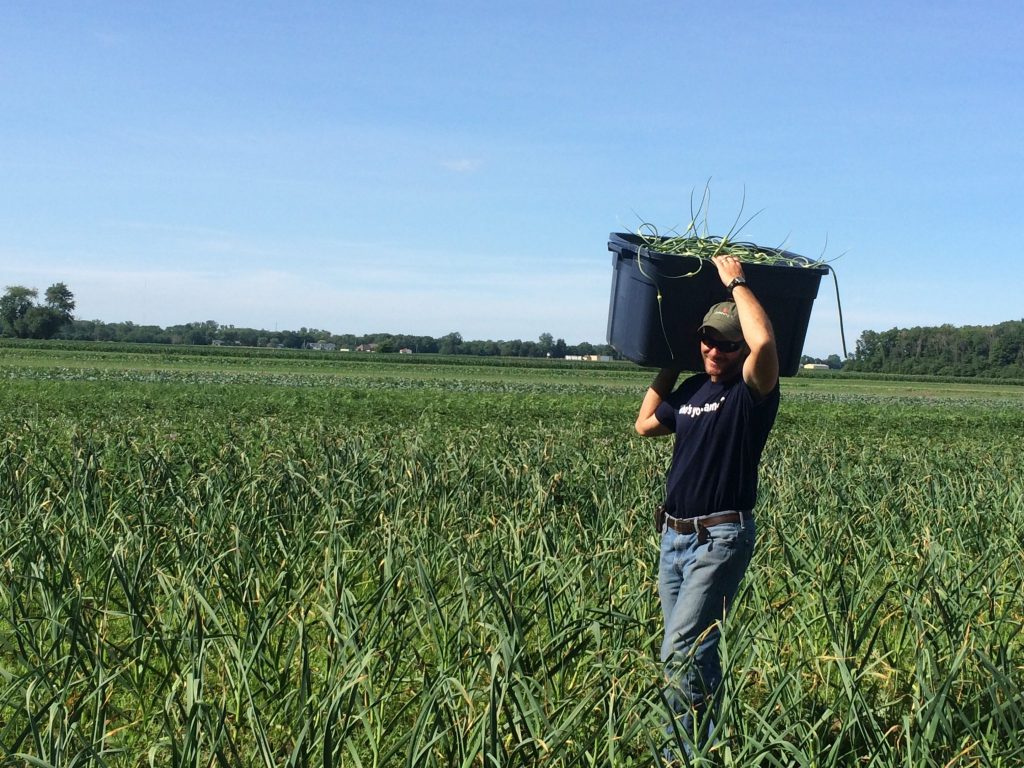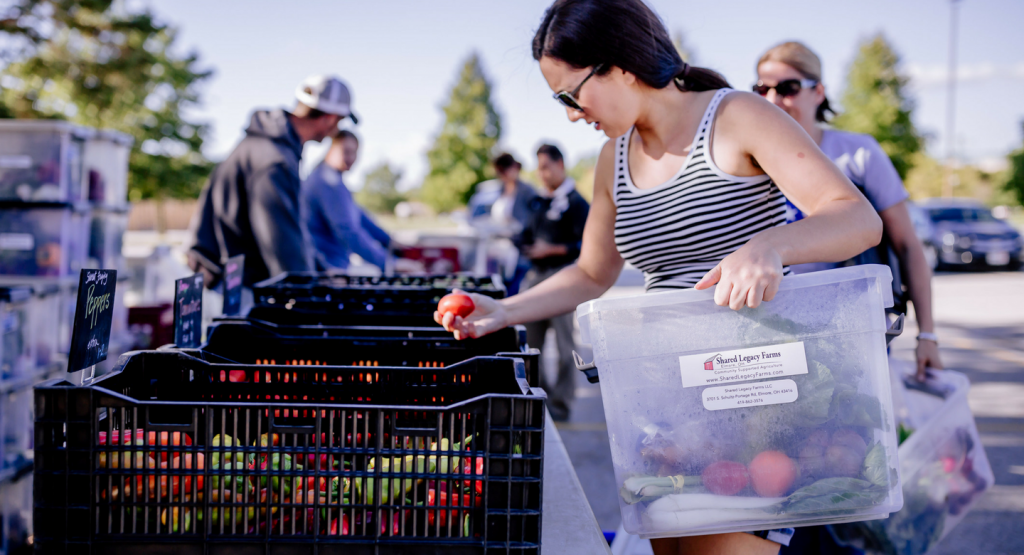What “Organic” does and doesn’t mean
It pays to understand the fine print in organic labeling.
Once our farm achieved the USDA “certified organic” seal in 2016, I started paying more attention to the way the word “organic” was being used around the markets or in the grocery store.
And here’s something you should know as a consumer:
Not all organic labels mean what you think they mean.
And when you see the word “organic” on a sign at the farmer’s market, it doesn’t always mean rainbows and unicorns.
Let me break it down for you…
The USDA rules determine how organic foods can be labeled. Here are some of the most common labels you’ll see. There are four.
We’ll start with the gold standard….
1. “100% Organic” or “Certified Organic”
If you see this label, you’re golden. Organic foods with this label must be grown or produced without chemical pesticides or fertilizers; and in livestock, without the use of antibiotics or growth hormones. Organic foods cannot be genetically modified, irradiated, or cloned.
This label means the food is organic down to the very last crumb. Most often, these are whole foods — apples, oranges, grains, or those with only one or two ingredients, like pasta.
2. “Organic” — check this out!
This means that at least 95% of the ingredients are organic — not 100%. The rest of the product can come from a list of allowable ingredients. These foods can also carry the USDA seal and are generally composed mostly of whole-food ingredients — canned soups or frozen foods.
Legally, as a vendor, you are not allowed to call something “organic” unless it meets this minimum 95% requirement.
Why is this important for you?…
Technically, farmers who use the “ORGANIC” label on their signs at the market or on their website without having USDA certification are breaking the rules.
And some of them (I’m sorry to say) don’t know the distinctions between these labels, and may not be using them properly.
So always ask your vendors if they know this labeling rule. (Because a lot of them don’t).
3. “Made with organic ingredients”
At least 70% of the ingredients are organic. Did you catch that? Not 100%.
Luckily, these foods, which may be any type of processed or packaged food, cannot carry the USDA seal.

4. “Grown using organic practices“
Between you and me, this label is somewhat fuzzy. And if you see it, you should really drill down with the farmer as to why he doesn’t have the USDA seal. I know a lot of farmers that essentially farm “certified organic” but don’t want the hassle or cost of the application and reporting processes. So for these farmers, the term “grown using organic practices” is probably legit.
But that doesn’t mean a farmer can’t squeeze in a few “minor” non-USDA violations — like using non-organic seed for some varieties or failing to rotate crop varieties each year, or spraying their crop with a non-allowable substance “just once” so that they are organic “most of the time.”
Something else to consider: I really don’t think farmers always mean to mislead customers with labeling.
- What often happens is that a farmer gets to the market and just doesn’t have enough room on their sign to write out “grown using organic practices.” So they just write: “organic.”
- Or they may really believe they farm using organic methods, but they haven’t studied the USDA rule book, and may unknowingly be neglecting a few items on the checklist.
- Or they see other non-organic farmers using the term wrongfully (and getting customers), and since labeling rules are not currently well-policed by market leaders, they do it too (even if they’re not big offenders).
Moral of the story: if labels matter to you and you value that food safety transparency, you should get to know your farmer and find out the back story of their growing practices and labeling methods.
When you know the hand that feeds you, the food labeling anxiety moves to the back burner.
Shared Legacy Farms has been proudly USDA certified organic through OEFFA since August, 2016. We believe this achievement brings extra value to our brand.
And if you think it does too…. you’re probably a really good fit for our farm!
Thank you for believing in us!

To join our veggie subscription box (aka CSA) head to www.sharedlegacyfarms.com/
